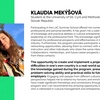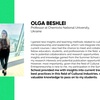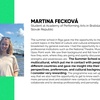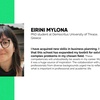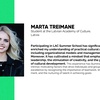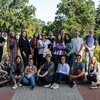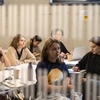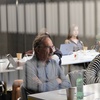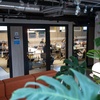Cultural Entrepreneurship & Leadership
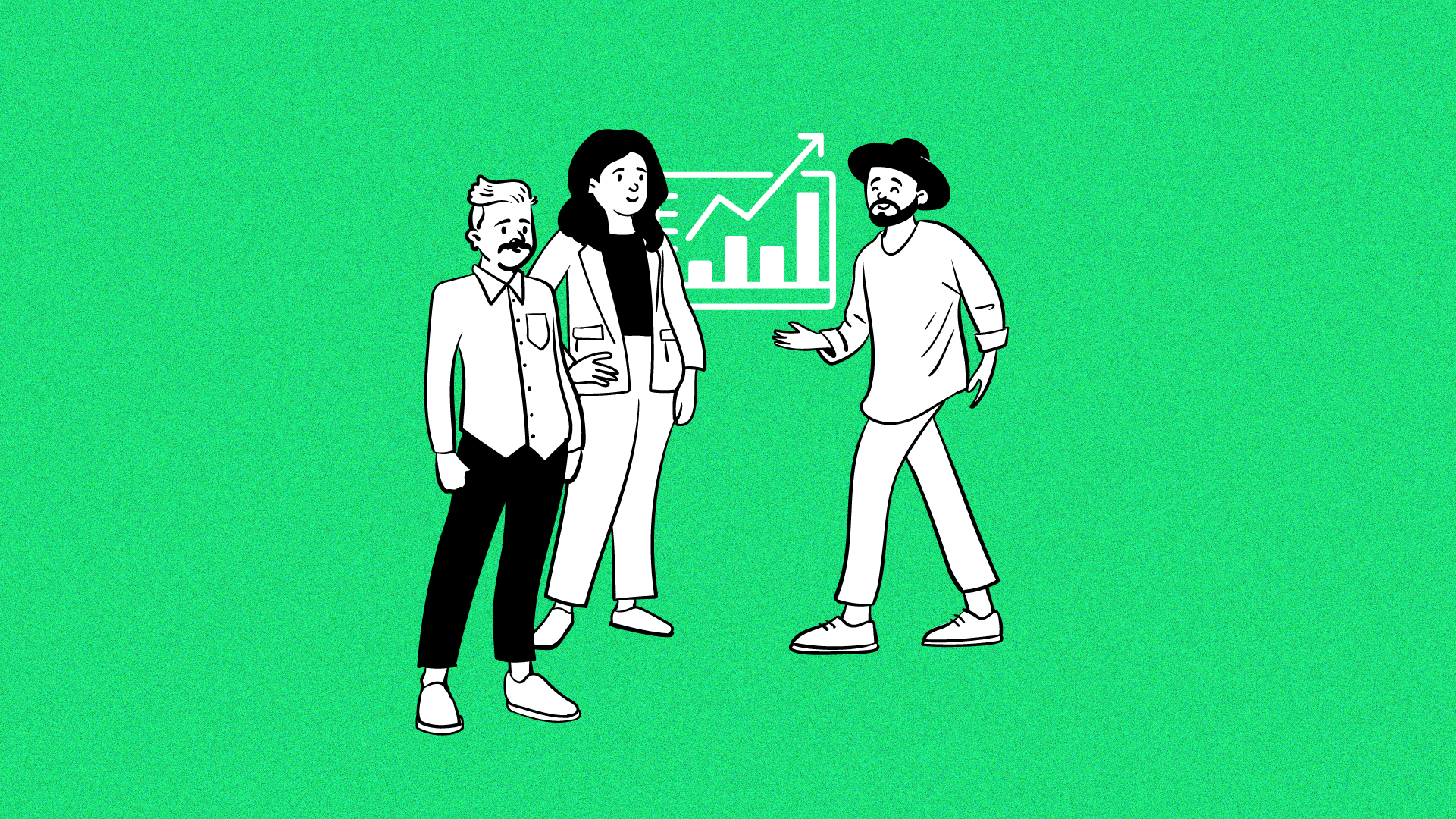
2023
International Summer School “Cultural Entrepreneurship & Leadership: reconstructing, relearning, reflecting”
Project No: 4.-10.5/3 (VIAA) un 2022-1-LV01-KA131-HED-000052069 (Erasmus+) Project implementation period: 01.02.2023- 1.09.2023 Dates of summer school: 17.09.2023-26.09.2023 Place: Latvian Academy of Culture, Ludzas Street 24, Riga, Latvia (17-19 August), SHED Co-Living Riga, Jelgavas Street 8/12, Riga, Latvia (21-26 August) Goal: Empowering people studying and working in the cultural sector with cultural leadership and entrepreneurial tools, designing resilience and sustainability by reconstructing, relearning, reflecting on knowledge and practice developments and co-creation in addressing topical issues Target groups: Advanced bachelor and master students, researchers and university staff members of the arts and culture, economics, and business administration from European countries. Applicants will be selected based on an application Team: Ilze Beimane (Latvian Academy of Culture), Elza Stalidzēna (Latvian Academy of Culture), Ieva Zemīte (Latvian Academy of Culture), Frans Brouwer (Erasmus University Rotterdam)
|
Experience of the participants
Summary
On August 26, 2023, the International Summer School "Cultural Entrepreneurship & Leadership: Reconstructing, Relearning, Reflecting," organized by the Latvian Academy of Culture (LAC) and Erasmus School of History, Culture and Communication (EUR), concluded. From August 17 to August 26, the Summer School gathered students from 20 different countries, including Germany, Iceland, France, Portugal, Slovakia, the Czech Republic, Greece, Macedonia, Serbia, the United Kingdom, Ukraine, Poland, South Africa, Norway, Romania, Hungary, Finland, Hungary, Kazakhstan, Uzbekistan, and, of course, Latvia.
Thanks to the initiative of Professor Frans Brouwer, teaching staff and industry professionals from the Netherlands, Slovenia, and Italy came together in Riga during the Summer School - Pauwke Berkers, Arjo Klamer, Ellen Loots, Anna Mignosa, Yosha Wijngaarden, Ljubica Knežević Cvelbar, Tomaž Simetinger, and Nora Veerman. Although researchers Ieva Zemīte, Žanete Eglīte and Una Arbidāne were representing the Latvian Academy of Culture. They shared their insights from the "Rethinking the Creative City Concept: Networks, Intermediaries, and Development Directions/RePrint (No. lzp-2021/1-0588)" project and tested a creative intermediary self-assessment tool.
Inspiring discussions on leadership and cultural entrepreneurship took place in the Lastādijas Quarter managed by the association "Free Rīga," at the Glass Point glass studio with artist Anna Heinsberga Varnase, at the Latvian National Opera and Ballet with board member Sandis Voldiņš, at the Latvian National Art Museum with Grieta Sīpola and Aija Zandersone, and during a discussion moderated by Ināra Bula with industry professionals on "How Does Cultural Policy and Governance Promote Cultural Entrepreneurship in Everyday Practice?" This discussion allowed participants to gain insights from Poland (Piotr Frich) and Latvia (Marta Kontiņa, Ieva Niedre).
Throughout Summer School, students worked together to develop their creative business ideas. At the programme's conclusion, seven significant initiatives were presented:
"Moving Sounds. Let the Classics Live: Music Reborn" (Lucie Janečkova, Martina Fecková, Klaudia Mekýšová, Diana Pokorna) aims to enhance the accessibility of classical music by providing opportunities for young music professionals to collaborate with dance studios, yoga class organizers, and other creative professionals.
The Icelandic team (Gabríel Dagur Kárason, Heiða Þórbergsdóttir, Hrafnhildur Heiða Sandholt, Þorbjörg María Ólafsdóttir) is purposefully advancing its initiative "Akranes Cultural Hub, Dynamic Cultural Organization for Creative Industries," which promotes creative tourism and collaboration among creative professionals in Akranes, Iceland.
The "Crafting Unity" team (Olga Beshlei, Franciska Tóth, Azamat Nurmatov, Emma Vartiainen) is dedicated to fostering friendship between Ukrainian children, who have had to find a new home due to war and other circumstances, and local Western Ukrainian residents. They plan to achieve this through the development of craft skills as a focal point of interaction.
A project called "Norway Hip-Hop Collective" (Brent Reynolds, Emilie Schei, Abduvosit Kobuljonov, Yi Kwan Chan) is designed to allow hip-hop artists to develop their artistic ideas rather than simply treating hip-hop as a sport.
The team interested in cinema, "Educational Space for Filmmakers in Latvia and Poland" (Marta Treimane, Una Zvejniece, Ilya Tsibets, Salima Kulakbayeva), combines their strengths to create a training program that more effectively engages young professionals in the film industry and provides opportunities for them to practice their skills.
Belgrade's youth development initiative, "Incubator for Youth Imagination" (Miljana Milojkovic, Sebastian Zünkler, Asnate Kalēja, Elias Martin, Teodor Simonov), aims to provide a platform for young people to develop their ideas and support the creation of new initiatives.
The project "Art Incubator in Athens" (Philippos Moschatos, Ana Gheorghiu, Eirini Mylona, Mafalda Simões Dinis Moniz de Oliveira) envisions a space in Athens where artists and creative individuals can pursue their artistic visions. The focus is on providing opportunities for refugees lacking access to creative self-expression spaces.
As noted by a student from Slovakia, the summer school programme and the experiences gained exceeded expectations, offering valuable insights that encouraged reflection and development every day.
Programme
Preparation Online preparation for the course (3rd August)
Day 1 Setting, concepts & Entrepreneurship (17th August)
Day 2 Leadership, Research on Cultural Industries, Inspiration (18th August)
Day 3 Best entrepreneurial practices (19th August)
Day 4 Daytrip to Jurmala and Riga Festival Events (20th August)
Day 5 Subsidies (21st August)
Day 6 Cultural Policy & Governance (22nd August)
Day 7 Cultural SME visit I & working on assignment (23rd August)
Day 8 Cultural SME visit II & working on assignment (24th August)
Day 9 Working on assignment (25th August)
Day 10 Final presentations & Evaluation (26th August)
The full programme of the Summer School 2023 is available here
Lecturers, researchers, other experts
Latvian Academy of Culture:
assoc. prof. dr. Ieva Zemīte
PhD candidate Žanete Eglīte MA
Una Arbidāne MA
Erasmus University Rotterdam:
prof. dr. Pauwke Berkers
dr. Frans Brouwer
prof. dr. Arjo Klamer
dr. Ellen Loots
dr. Anna Mignosa
dr. Yosha Wijngaarden
Other experts:
prof. dr. Ljubica Knežević Cvelbar (University of Ljubljana)
dr. Tomaž Simetinger (independent researcher, Ljubljana)
Nora Veerman MA (independent researcher, journalist, Amsterdam)
Piotr Frich (Poland)
Marta Kontiņa (Latvia)
Ieva Niedre (Latvia)
Ināra Bula (Latvia)
Photos


